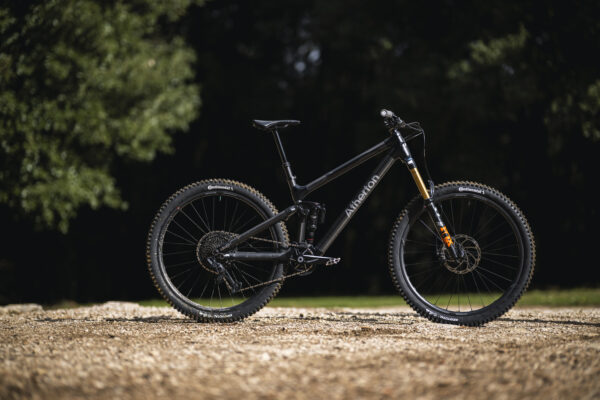FSA’s Gradient range has been revamped for gravity riders - inspired and developed with none other than the Athertons
Stems, cranks, bars, they’re not the most exciting bits of a mountain bike, are they? Well, maybe if you know some of the best mountain bikers in the history of mountain biking had something to do with the development of them.
That’s exactly what FSA did with the revamped Gradient line – aimed at trail, enduro and downhill (DH) riders, and developed with none other than the Athertons.
By now you’ve probably seen the Atherton DH race bike adorned with FSA kit – from cranks to the stem to the bars, but do you know about the individual components themselves and why the Atherton Racing team chooses to use FSA kit?
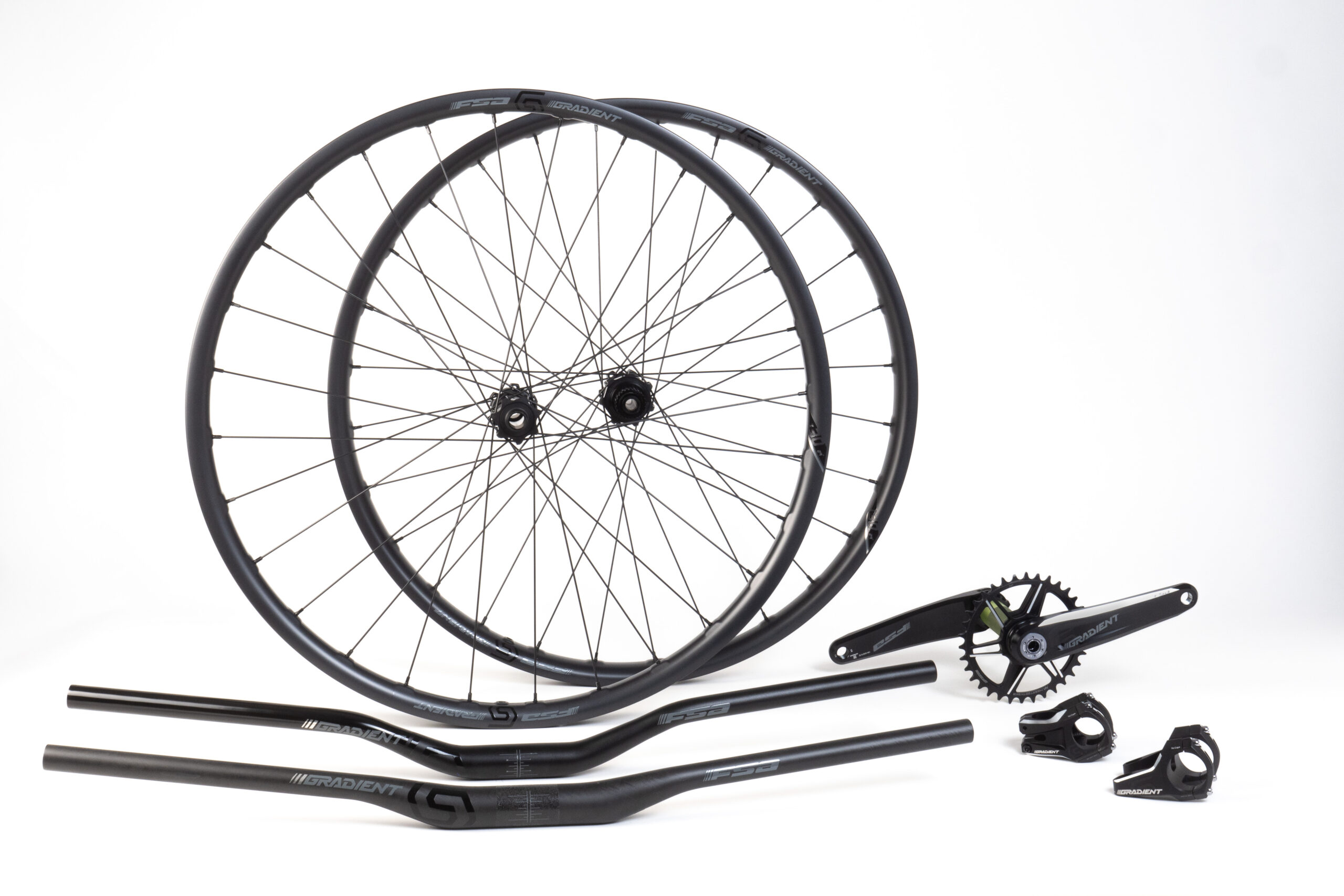
The new range offers bars, wheels, stems and cranks
Over a decade in the making
The new Gradient line is a milestone for FSA, as it’s the first update the range has seen since 2021. Not only that, but every product has been developed alongside Gee, Dan, and Rachel Atherton as well as Charlie Hatton as part of the Atherton Racing team.
As the top-end gravity component range from FSA, it’s important these components all withstand the rigorous usage a pro athlete will put them through – as well as the amateur rider at a bike park or on a weekend ride.
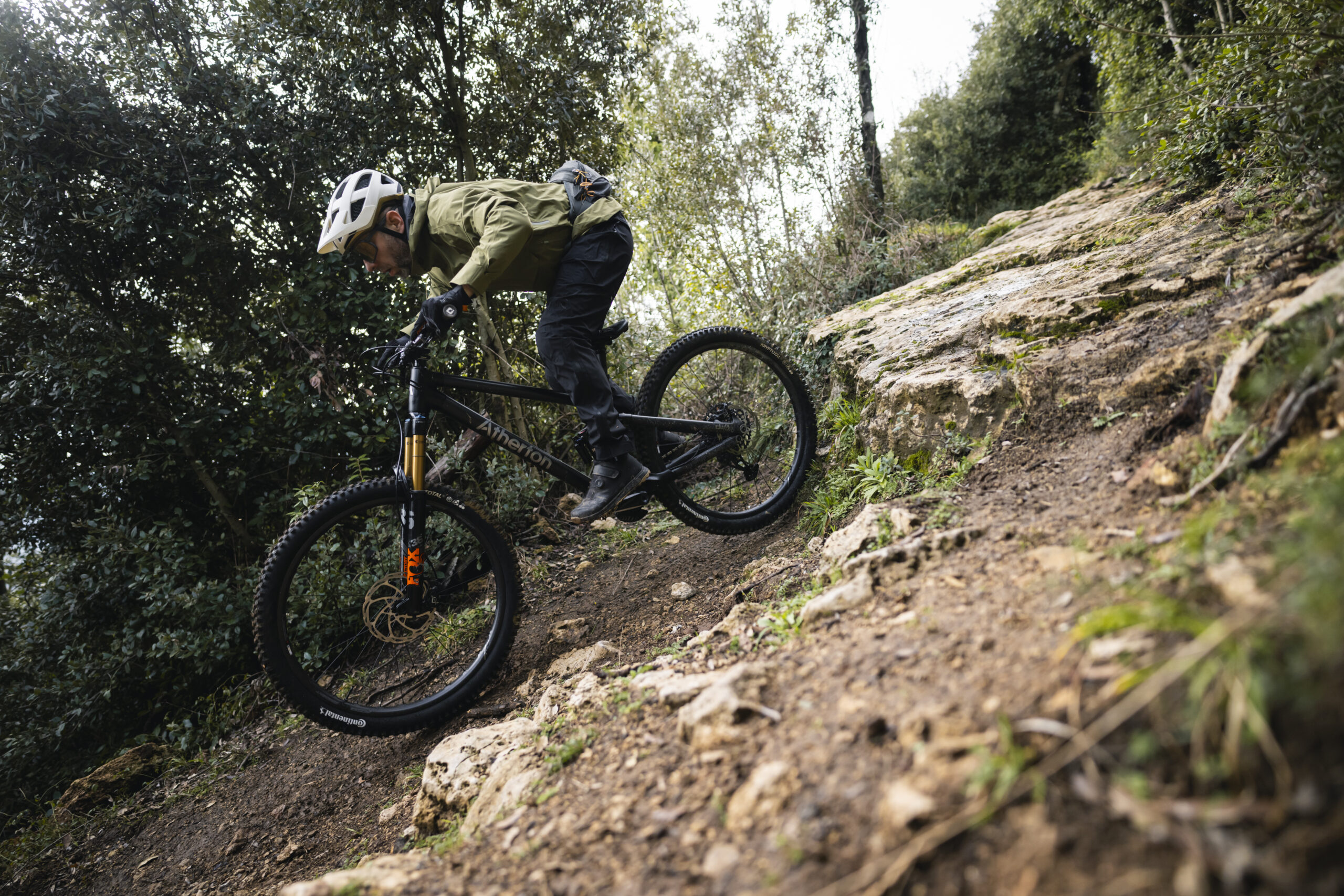
Trusted by the Atherton’s, the new Gradient range is designed as a premium gravity component collection
So what has FSA done to ensure the Gradient components are up to scratch?
Launching a completely new set of components is a big risk for any company, but especially one that’s releasing gravity mountain bike products. The most extreme form of mountain biking is DH, with an inherent strain forced upon the components run after run.
Throw in some treacherous terrain and maybe some inclement weather and you really need to be able to trust what you’re running on your bike. And who better to test these things than professional DH racers?
But alongside ripping tracks with prototypes on Atherton bikes, the FSA team has also been conducting extensive in-house tests on its Gradient products. With the carbon wheels for example, the team operates torsional, fatigue, impact, ISO, mud and spoke tests which check the product’s performance, durability and reliability in different conditions.
Only once FSA and the Athertons are happy with the prototype and testing results are the components then manufactured, using carefully selected factories in Taiwan.
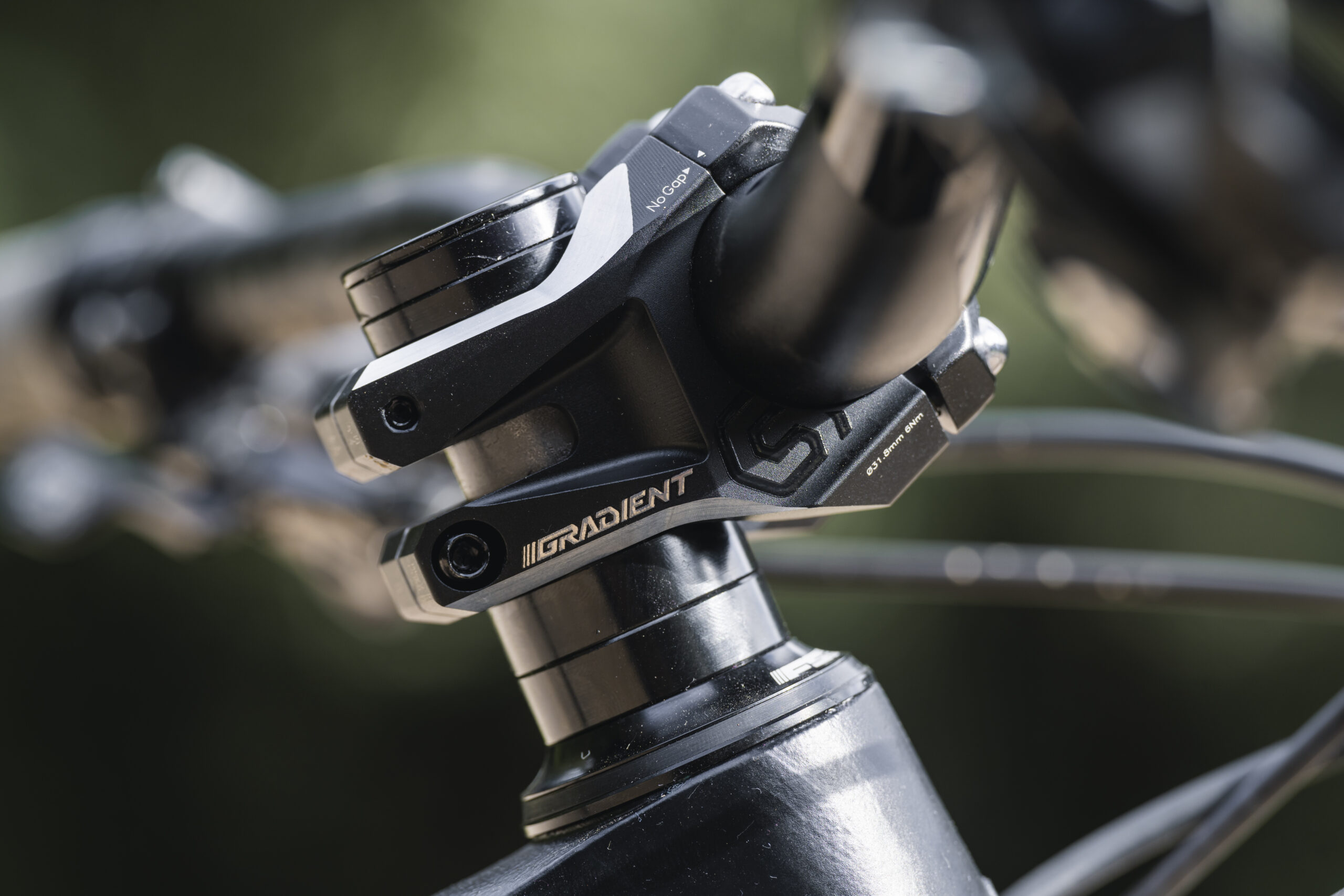
There are two stem choices with Gradient
The Gradient lineup
Okay, so the Gradient range is pretty bombproof. But is it any good? And what’s actually in the lineup?
First up, the new range gets a selection of handlebars – both carbon and alloy, and in varying degrees of rise to suit different riding styles. Heading down some steeps? Pick something with a bigger rise. Prices for these start at £99 for the alloy options, and there is a choice between 31.8mm and 35mm diameters.
Next there’s the Gradient i30 wheelset. We’ve spoken about how FSA tested these, but not about the spec. The i30 rims are hookless and asymmetric, with a 24mm depth and 30mm internal diameter. They’re currently available in 29in size but soon will be available in 27.5in for a mullet setup, too.
The hub is a Power-Ratchet System (PRS) X-900 with 72 points of engagement, and fitted with 28 direct pull double butted spokes with brass nipples – these help to keep the nipples from rusting in winter weather. They weigh a claimed 1,869g per pair and cost £1,499 – but come with a lifetime warranty for extra peace of mind.
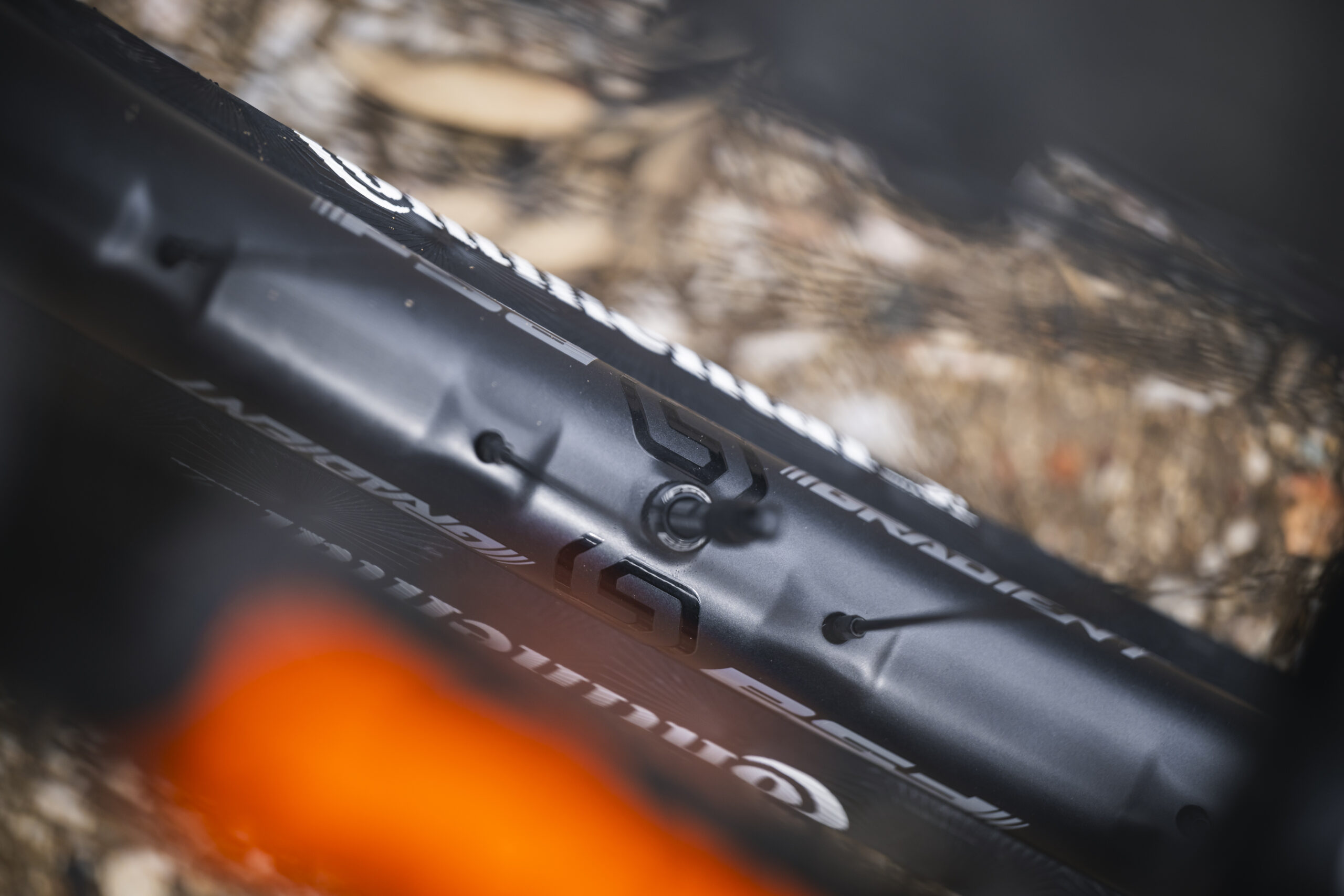
The i30 wheels use an asymmetric rim
Then there’s the Gradient Modular Crank. They’re an interesting bit of kit, these cranks, as they’re made using two forged halves and bonded together to create super lightweight DH rated crank arms.
They’re available in 165, 170 and 175mm lengths and in 30t, 32t, 34t and 36t options. FSA says the new manufacturing method has resulted in a 40% increase in strength and only a slight weight penalty compared to KFX cranks. Without the chainring, they’ll set you back £399 and with it’s an extra £134.99.
Finally, the créme de la stems. FSA has produced two different types of stems, for different types of riders. First up, the DH rider has the direct mount option. This works for e-bike riders, too, or anyone that’s using a dual-crown fork.
Why? Because it can handle the extra force coming through the cockpit better than a standard stem. The direct mount stem is available in 45-50mm lengths and includes a Boxxer mount as standard.
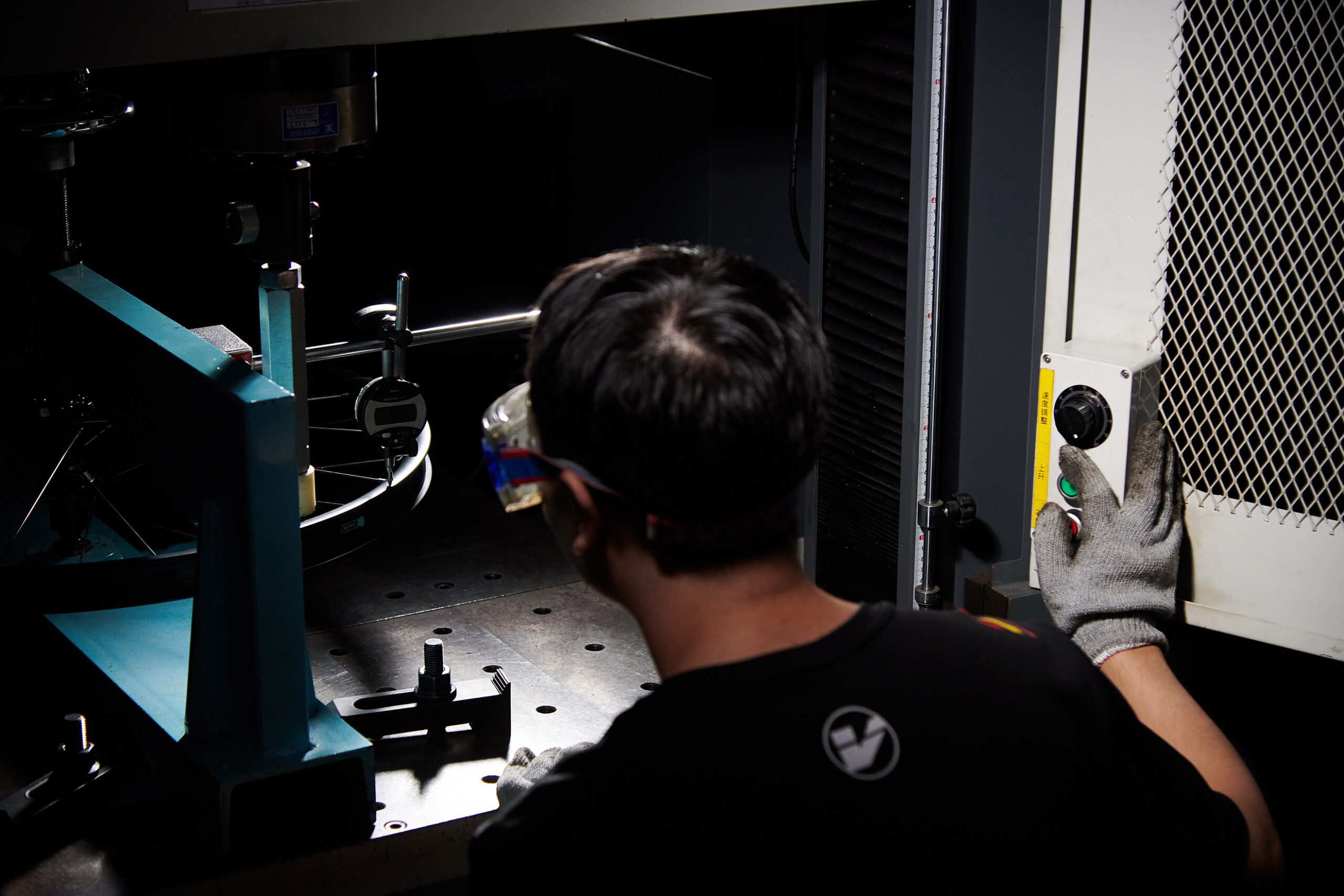
The products have been extensively tested in-house and in the field
The other option is the rather memorably named OS35/31.8 STD. And no, it’s not a disease, it is a stem. It’s available in 33mm, 45mm and 50mm lengths and fits 1 1/8in steerers. Both this and the direct mount stem are priced at £99.99.
So there’s the new Gradient range from FSA. A revamp on the popular gravity-focused lineup over the last decade, it’s been refined and redeveloped alongside some of the best pro athletes on the planet.
And if Rachel Atherton is happy to trust a set of cranks as she’s doing laps of Dyfi, and Gee is confident in his bike setup riding down a ridgeline in the Swiss Alps, I reckon I might be okay with riding some FSA components, too.
Find out more about the Gradient range on the FSA website.




